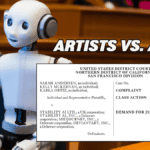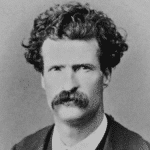Ah, the cease and desist letter. There is no more trusty weapon in the arsenal of an entertainment lawyer.
Most of these letters will get the job done, but tend to be dry and uninspired. They often appear to have been cribbed from a set of legal Mad Libs:
This letter will serve as formal notice that the above-referenced company is the legal owner of _____[noun]_____. It has come to our attention that you are _____[verb ending in -ing]_____. We hereby demand that you _____[verb]_____. Should you fail to _____[verb]_____, we will _____[scary-sounding verb]_____. Govern yourselves accordingly.
Scintillating.
The best cease and desist letters rival great literature (or at least decent mass-market paperbacks), enjoyed by lawyers and non-lawyers alike for their wit and turn of phrase. I’ve heard from several people over the years who actually claim to have framed the demand letters they’ve received from my partner Bert Fields. And Marty “Mad Dog” Singer’s missives have proven so popular on the Internet gossip circuit that they often garner as much attention as the legal claims they contain. Singer has even taken to demanding that websites not publish or disseminate his letters, under penalty of copyright infringement.
Can cease and desist letters be copyrighted? Well, yes — but so can instruction manuals for toaster ovens. The real question is whether anyone would actually do anything with them that would constitute copyright infringement. The commentary and (often scathing) criticism that invariably accompanies the posting of such letters would almost certainly qualify as fair use.
So, Singer’s approach: histrionic and overbearing? Perhaps. But definitely not uninspired.
If someone handed out an award for “best cease and desist letter of the year,” my vote would go to Peter Paterno’s letter to Joe Walsh, Illinois congressional hopeful, on behalf of Joe Walsh, Eagles guitarist. Walsh (candidate) was accused by Walsh (musician) of using an unlawful derivative version of one of the musician’s songs in a campaign video:
[U]nder [the] United States Copyright Act, you’re not allowed to take someone’s song and change the lyrics. This is not to say you’re not allowed to write silly lyrics, you just have to write them to your own music. Now, I know why you used Joe’s music — it’s undoubtedly because it’s a lot better than any music you or your staff could have written. But that’s the point. Since Joe writes better songs than you do, the Copyright Act rewards him by letting him decide who gets to use the songs he writes.
So, Paterno’s approach: obnoxious and overreaching? Probably. But definitely not dry.
Hard as it may be to believe, cease and desist letters are occasionally more valuable than the paper they’re printed on. Earlier this year, Lucasfilm made headlines for sending a cease and desist letter to a Hong Kong-based company, Wicked Lasers, complaining that one of its new high-powered laser products looked too similar to the famous (but fictional) lightsaber from Star Wars. How did Wicked respond to the demand that it change the design of the laser? It auctioned the cease and desist letter on eBay. The winning bid was a whopping $3,850. Hey, that’s certainly one way to defray the cost of legal fees.
Personally, I’d be flattered if anyone thought one of my cease and desist letters worthy enough to hang on the wall or sell at auction. Until then, I’ll just keep trying to hone my skills.
Govern yourselves accordingly.






